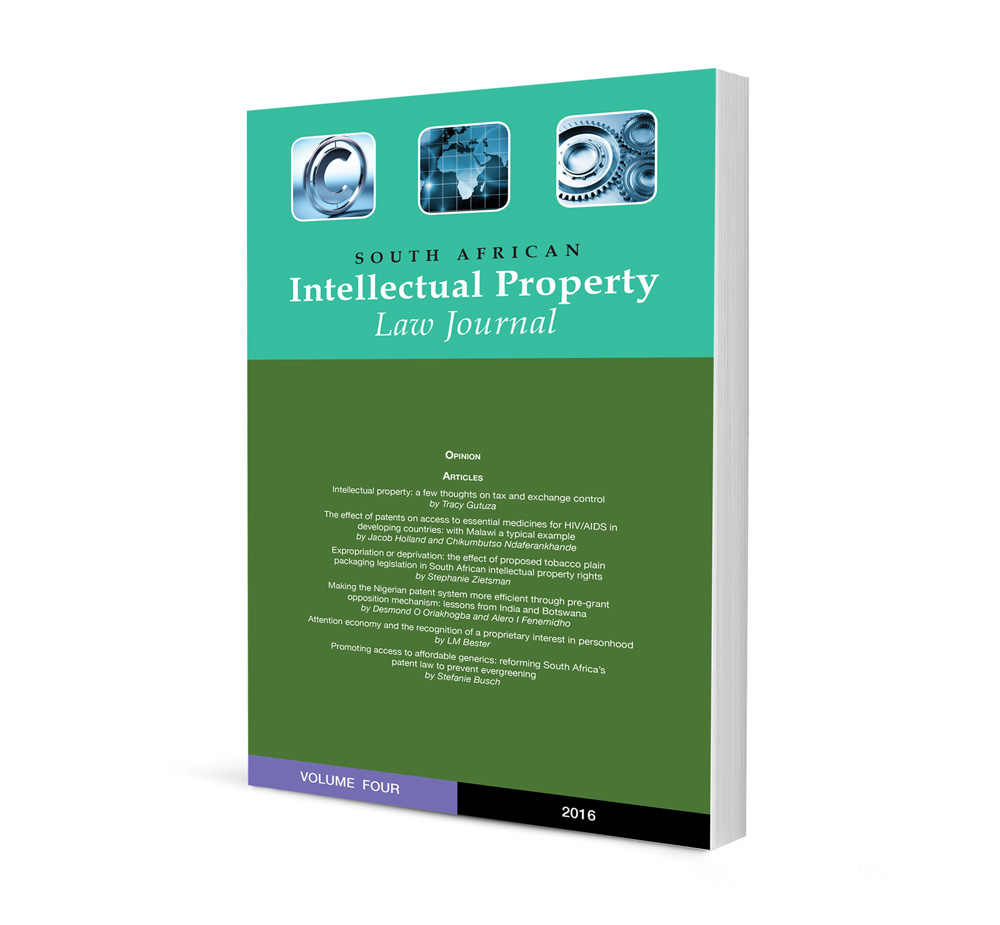
Promoting Access to Affordable Generics: Reforming South Africa’s Patent Law to Prevent Evergreening
Authors Stefanie Busch
ISSN: 2521-2591
Affiliations: None
Source: South African Intellectual Property Law Journal, 2016, p. 101 – 119
Abstract
This research paper focuses specifically on the need for a reform of South Africa’s current patent law regime, which is regulated by the Patents Act.1 By evaluating the drawbacks resulting from this regime, which are affecting public health and the country’s economy, this paper will identify the practice of evergreening as one of the main causes of such shortcomings. This writer will go on to suggest three manners in which South Africa’s current patent law regime should be reformed in order to prevent foreign pharmaceutical companies from taking advantage of its patent laws — and the patent application process specifcally — especially by means of the practice of evergreening. These suggestions are: (i) moving from a deposit or non-examination system for patent applications to a substantive patent examination system; (ii) creating a patent opposition system; and (iii) enacting an ‘effcacy’ requirement, as was done by means of s 3(d) of the Indian Patent Act.